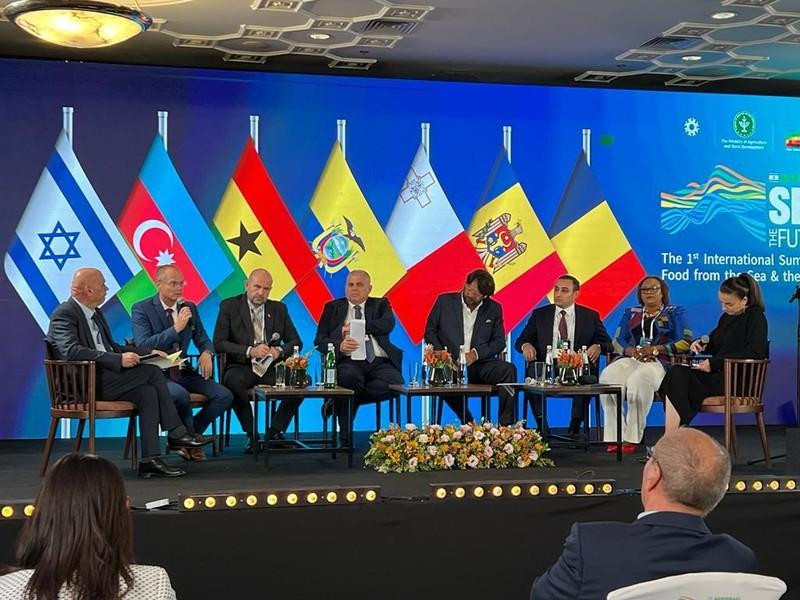Themed “Sea the Future”, the conference is an initiative of Israel’s Ministry of Agriculture and Rural Development, to promote cooperation and innovation in aquaculture and desert agriculture, as part of the global effort to solve the problem of food insecurity.
Speaking at the conference, Israel’s Minister of Agriculture and Rural Development Oded Forer said: "Among the challenges over the next decade, we are touching one of the most important points for humanity,” adding that food insecurity is the main challenge.
Experts say many countries around the world have been unable to continue to produce food as before, due to climate change, global warming, growing populations and lack of resources. Therefore, the need for new advanced technology and methods in agriculture becomes more and more urgent.
The world is currently facing an unprecedented global emergency of food insecurity. According to the Food and Agriculture Organisation of the United Nations (FAO), there are currently about 828 million people in the world affected by hunger and this number has been steadily increasing over the past few years.
In addition, an estimated 2.3 billion people faced moderate or severe food insecurity in 2021, bringing the number of people unable to access a healthy diet to 3.1 billion people, or about 40% of humanity.
The alarming numbers about the risk of global food shortages come from the fact that the world has not adequately managed the use of marine resources and wasted food. These are two major challenges that need to be addressed. Many developing countries, especially the least developed ones, still lack the right infrastructure, services and solutions to handle and preserve fish on ships and shore.
Therefore, the conference in Israel is an important opportunity for countries to share experiences in the management and exploitation of marine resources, as well as innovations in agricultural development in arid lands. The host Israel is a country known for its strength in innovation, especially in the field of agriculture, which can share good experiences in developing types of agricultural production using high technology, contributing to ensuring food security.
With available natural conditions, the Israeli government recently launched a project to find new sources of protein from the sea and desert, to solve the challenge of food scarcity. In addition to the US, Israel is also one of the emerging countries with innovative and artificial food technology, contributing to diversifying food supply to the market.
Israel’s Redefine Meat recently announced the signing of a partnership agreement with importer Giraudi Meats (Monaco), to promote the distribution of “New Meat” steak cuts in the European market. “New Meat” is an artificial meat product with completely plant-based ingredients and produced using 3D printing technology. Artificial meat products are said to be alternatives that help protect animals and the environment. Using plant-based ingredients such as soy, pea protein, chickpeas, sugar beets, nutritional yeast and coconut fat, Redefine Meat has technically mapped over 70 different parameters for the accurate texture of the meat, then using 3D printing technology to create fully optimised and lifelike products.
The current food crisis is demanding that the world take a comprehensive and innovative approach to make the most of the resources used to find a way out of the crisis. Agricultural production systems need to be transformed and high-tech agriculture is an inevitable trend on the road to global food security.
















